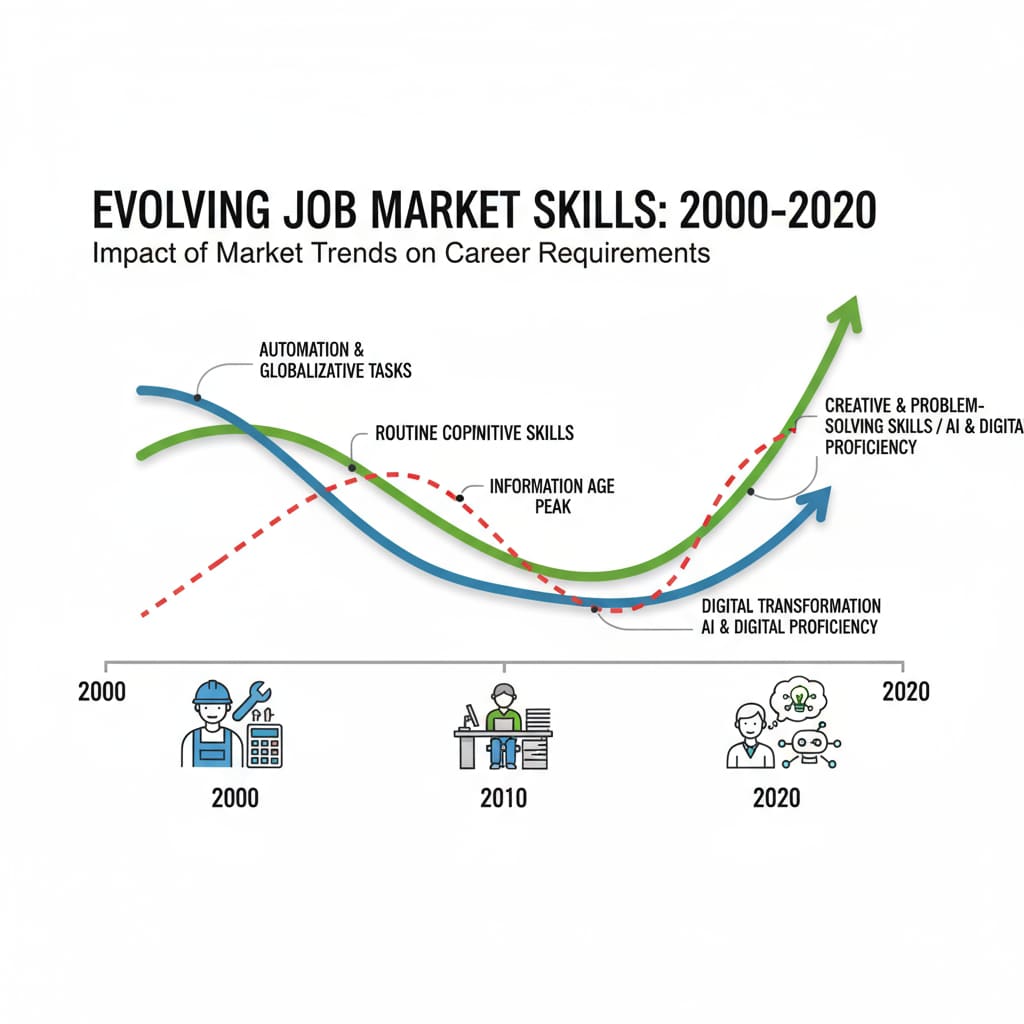University degrees, job market, and career development have always been closely intertwined. However, in today’s rapidly evolving job market, the once-clear connection between a university degree and guaranteed career success has become somewhat blurred. The image of a highly educated individual easily stepping into a well-paying, prestigious job is no longer the norm. Take, for example, the scenario where a master’s degree holder is working at a fast-food restaurant. This situation makes us question the real value and returns of university degrees in the contemporary job market.

The Changing Landscape of the Job Market
The job market has undergone a significant transformation in recent years. Technological advancements, globalization, and the rise of new industries have reshaped the demand for skills. Traditional jobs that required a university degree as a basic entry requirement are now being automated or outsourced. For instance, many routine administrative and data entry jobs that were once filled by graduates are now being handled by artificial intelligence and software. As a result, the oversupply of university graduates in some fields has led to increased competition and a situation where having a degree alone is not enough to secure a desirable job. Job market trends on Wikipedia

The Diminishing Value of University Degrees?
It may seem at first glance that the value of university degrees is diminishing. The high cost of tuition, the time invested in obtaining a degree, and the uncertain job prospects upon graduation have many questioning whether it’s still worth it. However, it’s important to note that degrees still hold value. A university education provides a broad-based knowledge foundation, critical thinking skills, and the ability to learn and adapt. The issue is that the skills emphasized in university curricula often do not align perfectly with the immediate needs of the job market. Education overview on Britannica
For example, a liberal arts degree may cultivate excellent communication and analytical skills, but graduates may lack the specialized technical skills required in emerging fields like data science or cybersecurity. This misalignment between education and job market needs is what gives the impression that university degrees are losing their value.
Implications for K12 Education
The changing job market and the evolving value of university degrees have significant implications for K12 education. K12 education is the foundation upon which students build their future academic and career paths. It needs to adapt to better prepare students for the realities of the modern job market. One key aspect is the integration of practical skills into the curriculum. Instead of focusing solely on theoretical knowledge, K12 students should be exposed to hands-on learning experiences related to real-world jobs.
In addition, cultivating critical thinking and problem-solving skills should be a top priority. These skills enable students to analyze complex situations, make informed decisions, and find innovative solutions – qualities highly sought after in the job market. Moreover, promoting a culture of lifelong learning is essential. In a world where skills become obsolete quickly, students need to develop the mindset and ability to continuously learn and upgrade their skills throughout their lives.
Readability guidance: As seen above, we have used short paragraphs to clearly present ideas. Each section under the H2 headings provides key points in a straightforward manner. We have also made sure to keep the passive语态 to a minimum and used transition words like “however”, “for example”, and “in addition” to enhance the flow of the article.


